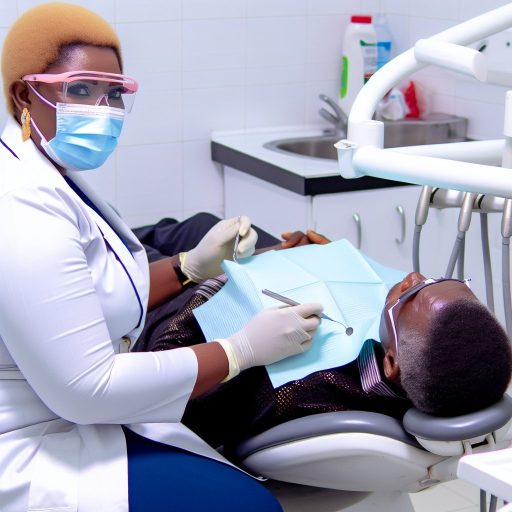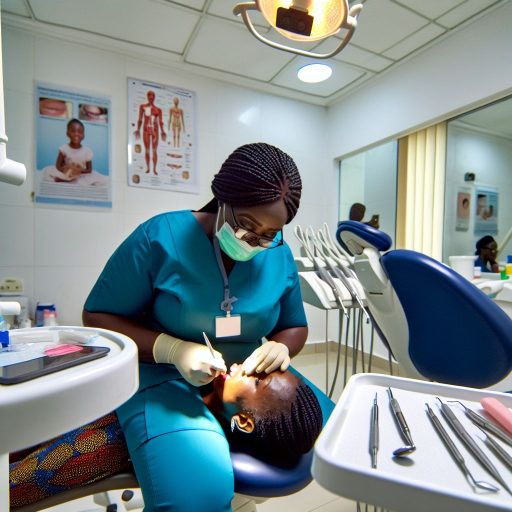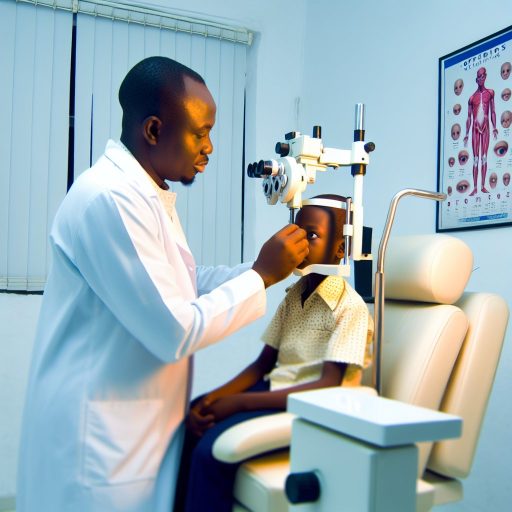Introduction
Mental health treatments are essential for overall well-being and quality of life.
Brief explanation of the topic
Traditional mental health treatments have been practiced for centuries in various cultures.
Modern mental health treatments involve the use of advanced technology and evidence-based practices.
Importance of mental health treatments
Effective mental health treatments can help individuals cope with stress, anxiety, depression, and other mental health issues.
Timely interventions can prevent the worsening of mental health conditions and improve the quality of life.
Access to both traditional and modern mental health treatments can provide individuals with diverse options for treatment.
Overview of Traditional Mental Health Treatments
In many cultures around the world, traditional mental health treatments have been used for centuries to address various psychological and emotional issues.
These treatments often involve a holistic approach that considers the interconnectedness of the mind, body, and spirit.
While modern mental health treatments have become more prevalent in recent years, traditional methods continue to hold cultural significance for many communities.
Description of Traditional Healing Methods
Traditional healing methods for mental health typically involve a combination of rituals, ceremonies, herbal remedies, and spiritual practices.
These methods are rooted in the belief that mental and emotional well-being is closely tied to a person’s connection to their community, ancestors, and the natural world.
Traditional healers, often known as shamans, medicine men, or spiritual guides, play a central role in facilitating these healing practices.
Examples of Traditional Mental Health Treatments in Different Cultures
Traditional mental health treatments vary greatly from one culture to another, incorporating unique practices and rituals that reflect the values and beliefs of that specific community.
For example, in Indigenous cultures, ceremonies such as sweat lodge rituals and vision quests are used to address mental health issues.
In traditional Chinese medicine, practices like acupuncture and herbal medicine are utilized to restore balance to the body and mind.
In African cultures, spiritual ceremonies and dance are often used to promote healing and well-being.
Cultural Significance of Traditional Treatments
Traditional mental health treatments hold significant cultural value for many communities around the world.
These practices are often deeply rooted in cultural traditions, history, and spirituality, serving as a way to connect individuals to their heritage and identity.
Traditional healing methods are seen as a way to not only address mental health concerns but also to strengthen community bonds and preserve cultural practices that have been passed down through generations.
Overview of Modern Mental Health Treatments
Mental health treatment has come a long way over the years.
It has evolved from traditional methods to modern approaches.
These incorporate a combination of therapy, medication, and other interventions.
In this blog post, we will explore the various aspects of modern mental health treatments.
We will highlight the advancements that have been made in this field.
Description of Modern Treatment Approaches
Modern mental health treatments focus on using evidence-based practices.
These practices are used to diagnose and treat various mental health conditions.
Tailoring approaches to the individual needs of each patient is essential.
This considers their unique symptoms and circumstances.
One key feature of modern treatment approaches is the emphasis on a holistic view.
This view recognizes the interconnectedness of the mind, body, and spirit.
Therapy plays a central role in modern mental health treatment.
A variety of therapeutic modalities are available to address different concerns.
Cognitive-behavioral therapy (CBT), psychodynamic therapy, and mindfulness-based therapies are common.
These therapies aim to help individuals gain insight into their thoughts and behaviors.
They also help develop coping strategies and improve overall well-being.
Discussion on Therapy, Medication, and Other Modern Interventions
In addition to therapy, medication is often prescribed as part of modern treatment.
Psychiatric medications can help alleviate symptoms and improve functioning.
Common medications include antidepressants, anti-anxiety medications, and mood stabilizers.
It is important for patients to work closely with healthcare providers.
Finding the right medication and dosage is crucial for individual patients.
Transform Your Career with Expert Guidance
Get personalized mentorship consulting that’s tailored to your unique path. Our expert advice is actionable and exclusive.
Get StartedAside from therapy and medication, other modern interventions can be beneficial.
Lifestyle changes, such as regular exercise, healthy diet, and adequate sleep are vital.
Complementary therapies like yoga, acupuncture, and meditation can also help.
These interventions support overall mental health and well-being.
They provide additional tools for individuals to manage their symptoms and improve quality of life.
Advancements in Mental Health Treatments
Advancements in mental health treatments have revolutionized the approach to mental health conditions.
One significant advancement is the use of technology in mental health care.
Teletherapy, mobile apps, and online resources have become integral.
These resources make mental health support more accessible and convenient.
Technological advancements expand the reach of mental health services.
Individuals can access support and treatment from anywhere, at any time.
Another major advancement is the focus on personalized medicine and precision psychiatry.
Utilizing genetic testing, brain imaging, and biomarkers allows for tailored treatment plans.
This personalized approach can lead to more effective interventions.
Overall, this improves outcomes for patients with mental health conditions.
You Might Also Like: Community-Based Rehabilitation Programs Nigeria
Differences in approach and principles
Traditional treatments often focus on spiritual and community connections.
Modern treatments usually prioritize evidence-based practices and scientific research.
Traditional approaches may involve rituals, ceremonies, and herbal remedies.
Modern approaches include therapy, medication, and cognitive-behavioral techniques.
Traditional methods may view mental health as a result of spiritual imbalance or soul loss.
Modern methods often consider mental health as a combination of biological, psychological, and social factors.
Effectiveness of traditional vs modern treatments
Traditional treatments have been passed down through generations and may have cultural significance.
Modern treatments are backed by research and are constantly evolving with new evidence.
Traditional methods may work well for individuals who prefer holistic and culturally relevant practices.
Modern methods have been proven effective for a wide range of mental health conditions.
Traditional treatments may not always be effective for severe mental illnesses that require specialized care.
Modern treatments can provide targeted interventions and personalized treatment plans.
Cultural acceptance and integration
Traditional treatments are deeply rooted in cultural beliefs and practices.
Modern treatments are often more widely accepted in mainstream society.
Traditional approaches may be more accessible and familiar to individuals from certain cultural backgrounds.
Modern approaches strive to be culturally competent and inclusive of diverse perspectives.
Traditional practices can help preserve cultural heritage and healing traditions.
Modern practices aim to integrate cultural considerations into treatment to improve outcomes.
Learn More: Ethical Issues in Biomedical Technology Nigeria
Challenges with Traditional Mental Health Treatments
Traditional mental health treatments have been used for centuries across various cultures and societies.
While these treatments have been ingrained in different belief systems, they also come with their own set of challenges:
Lack of scientific evidence
One of the major challenges with traditional mental health treatments is the lack of scientific evidence to support their effectiveness.
Many traditional practices are based on cultural beliefs and rituals rather than empirical evidence.
Without scientific backing, it becomes difficult for mental health professionals to confidently recommend these treatments to their patients.
This lack of evidence can also lead to skepticism among individuals seeking help for their mental health issues.
Stigma and skepticism
Traditional mental health treatments are often stigmatized in modern society.
People may view these practices as outdated or ineffective, which can deter individuals from seeking help or accessing these treatments.
There is also a sense of skepticism surrounding traditional treatments, with many questioning their validity and safety.
This skepticism can further contribute to the stigma associated with these practices, creating barriers to their acceptance within mainstream mental health care.
Accessibility and affordability issues
Another challenge with traditional mental health treatments is the lack of accessibility and affordability.
In many cases, these treatments are only available in certain regions or communities, making it difficult for individuals in other areas to access them.
Additionally, some traditional treatments may be expensive or require extensive resources to implement effectively.
This can further limit the availability of these treatments to individuals who may benefit from them but are unable to afford or access them.
Uncover the Details: How to Choose the Right Ophthalmologist in Nigeria

Challenges with Modern Mental Health Treatments
One of the main challenges with modern mental health treatments is the side effects of medication.
While medication can be effective in managing symptoms, it often comes with a range of side effects that can be debilitating for some individuals.
Side effects of medication
Some common side effects of mental health medications include weight gain, nausea, dizziness, and sexual dysfunction.
These side effects can impact a person’s quality of life and may even deter them from seeking treatment altogether.
In addition to the side effects of medication, another challenge is the limited access to therapy.
Limited access to therapy
Many modern treatments, such as cognitive-behavioral therapy or dialectical behavior therapy, require regular sessions with a trained therapist.
Unfortunately, not everyone has access to these types of therapies due to factors such as cost, location, or availability.
This can leave individuals without the essential support they need to manage their mental health effectively.
Moreover, the cost of modern treatments can be a significant barrier for many people seeking help for mental health issues.
Cost of modern treatments
The price of medications, therapy sessions, and other forms of treatment can add up quickly, making it inaccessible for those with limited financial resources.
Even with health insurance, copays and deductibles can still be costly, especially for individuals who require ongoing treatment.
This financial burden can prevent individuals from accessing the care they need, leading to worsening symptoms and decreased quality of life.
Discover More: Anaesthesiology and Patient Safety in Nigeria
Importance of a Holistic Approach
One of the key reasons why many mental health professionals are advocating for the integration of traditional and modern treatments is because of the importance of taking a holistic approach to mental health care.
Mental health issues are complex and can be influenced by a variety of factors, including genetics, environment, and lifestyle.
By combining traditional treatments, which often focus on cultural and spiritual practices, with modern treatments, which may involve medication or therapy, individuals can receive a more comprehensive and personalized approach to their mental health care.
Examples of Successful Integration
There are several examples of successful integration of traditional and modern mental health treatments.
For example, in some indigenous communities, healers work collaboratively with psychologists or therapists to provide a combination of traditional healing practices, such as ceremonies or rituals, with modern therapies, such as cognitive-behavioral therapy.
This approach has been shown to be effective in addressing mental health issues and improving overall well-being.
Another example of successful integration is the use of alternative therapies, such as yoga or acupuncture, in conjunction with traditional psychotherapy or medication.
These holistic approaches can help individuals manage stress, anxiety, and depression while also addressing physical symptoms that may be contributing to their mental health issues.
Benefits of Combining Traditional and Modern Treatments
There are numerous benefits to combining traditional and modern mental health treatments.
One of the main advantages is that it allows for a more personalized and tailored approach to treatment.
By incorporating traditional practices that are culturally relevant and meaningful to the individual, along with evidence-based modern treatments, individuals can receive a more comprehensive and effective form of care.
Additionally, the integration of traditional and modern treatments can help address the stigma associated with mental health issues.
Traditional practices are often deeply rooted in cultural and spiritual beliefs, which can help individuals feel more comfortable seeking help and engaging in treatment.
By incorporating these practices into modern mental health care, the stigma surrounding mental health can be reduced, making it more accessible and acceptable to seek help.
Understanding Mental Health Treatment Options
It is vital to acknowledge the differences between traditional and modern mental health treatments.
Both approaches have their strengths and limitations.
What works for one individual may not work for another.
It is important to consider individual preferences and beliefs when choosing a treatment option.
Whether it is therapy, medication, or a combination of both, the key is to find a solution that aligns with the individual’s values and needs.
Recap of Key Points
- Traditional mental health treatments have been practiced for centuries and focus on holistic healing.
- Modern mental health treatments, such as psychotherapy and medication, are evidence-based and widely used.
- Each individual responds differently to treatments, and it is crucial to find what works best for them.
Call to Action for Seeking Mental Health Support
If you or someone you know is struggling with their mental health, do not hesitate to seek support.
Whether it is through therapy, counseling, medication, or support groups, reaching out for help is the first step towards healing.
Importance of Considering Individual Preferences and Beliefs in Treatment Choices
When it comes to mental health treatment, there is no one-size-fits-all solution.
It is essential to consider individual preferences, beliefs, and values when choosing a treatment option.
By aligning treatment choices with personal preferences, individuals are more likely to experience positive outcomes and long-term success in their mental health journey.
Additional Resources
TIP 59: Improving Cultural Competence
Preferred Treatment for Mental Illness Among Southwestern Nigerians




